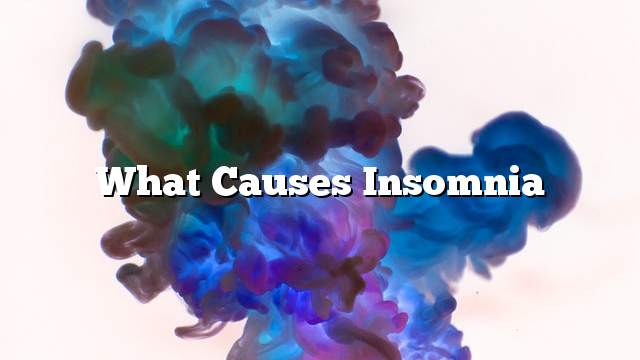Insomnia
Insomnia
Insomnia is divided into two types depending on the length of time:
- Acute Insomnia: This type is short-lived and lasts for a few days or a week, usually due to stress or stress or traumatic events such as the thinnest night of the exam or after hearing bad news. Many people experience this kind of transient sleep disorder, and the problem is solved without the need for treatment.
- Chronic insomnia: Sleep disturbance means at least three nights a week and lasts for at least three months. Insomnia may be the underlying problem, or it may be related to a health condition, psychological problem or medication.
Causes of insomnia
There are many conditions and habits that cause insomnia, including:
Symptoms of insomnia
There are many symptoms associated with insomnia, including:
- Difficulty sleeping at night.
- Waking up at night.
- Waking early despite the desire to sleep.
- Feeling tired and sleepy despite sleeping at night.
- Irritability, irritability or anxiety.
- Weak focus.
- Increase in errors and accidents.
- Tension Headaches.
- Difficulty of social interaction.
- Gastrointestinal symptoms.
- Anxiety about sleep.
Treating insomnia
Insomnia is treated on the basis of its cause; many cases are treated after the underlying cause has been treated correctly. There are two types of treatments for insomnia, behavioral therapy and medical treatment.
Behavioral cognitive therapy
Cognitive Behavioral Therapy is the first line of therapy; the cognitive part helps to identify and change beliefs that affect sleep ability, and control the thoughts and fears that keep a person awake. The behavioral part helps to develop good sleep habits, and avoid behaviors that affect sleep negatively.
Measures of behavioral therapy include:
Drug therapy
Sleeping pills prescribed by a doctor can help you sleep or continue, or both, some of which are not recommended for more than a few weeks because of side effects such as daytime Grogginess, increased risk of falls . Even those over-the-counter drugs that help sleep can not be taken without a doctor’s advice, such as antihistamines, for side effects such as drowsiness during the day, dizziness, confusion, cognitive impairment, and difficulty urinating.
